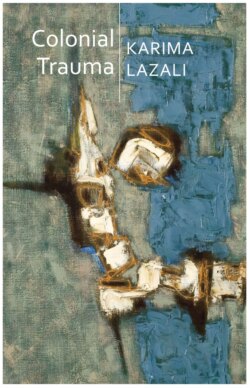Читать книгу Colonial Trauma - Karima Lazali - Страница 13
A much-needed interdisciplinary approach
ОглавлениеFor the time being, uncovering this history is left to historians, whose work, although indispensable, fails to account for actively troubled subjectivities. What’s more, in France, once a historical record is reconstructed, it rarely gets noticed outside of its own disciplinary framework. This is in stark contrast to the multidisciplinary approach of postcolonial studies in the Anglophone world, which have remained largely inaccessible to Francophone readers, in spite of the fact that these works draw on the writing of major French-language theorists: Césaire, Sartre, Fanon, Memmi, Lacan, Derrida, Foucault. Further developed and articulated abroad, this French history is paradoxically hard to translate back home. This paradox seems symptomatic of an impossible reciprocity, which results in so much research, so many carefully crafted arguments remaining in utter obscurity.
In France, there seems to be an assumption that the history of colonization falls strictly within the purview of historians and former “indigènes,” and therefore that they have the exclusive right to treat it. And in Algeria, that colonialism belongs entirely to those who were colonized, making the rest of us apathetic to its debates and complex history. Go along now, nothing to see here! In both places, there are unbridgeable divisions – an effect of coloniality. And this issue cannot be tackled without an interdisciplinary approach, as each discipline offers a distinct vantage point on the matter. Otherwise, by succumbing to a crude partitioning of the past, present, and future, the colonial world will continue to remain sealed and inaccessible.
In Algeria, the effects of colonialism are so embedded in the psyche of individuals that it becomes difficult to distinguish between what results from direct impact and what has formed over time into an “identity” crisis caused by its disruption of the core network of subjectivities and the social bond. Subjectivities are thus entirely suffused with coloniality. This is now accepted as an unequivocal and indisputable historical fact, which undermines the idea that the primary interpreter of History is first and foremost the subject. This is probably why the consequences of colonization appear only in public discourse as cries of pain and resentment, which target the Other of colonialism while staying mute about the impacts of History on one’s personal history. In Algeria, it is as though colonization is the one and only trauma. Whereas in France, the notion of colonial trauma is flipped on its head and exploited by the political order: much talk is made of the “benefits of colonization” for “indigène” subjects. The political order thus strives to make the historical record disappear and to discount the role the subject plays in History. Here again, no clinical work has considered the specificity of these traumas and their impact on the social bond. Instead, we are stuck in the hell of this duality which allows the war to persist by other means.
Bringing together psychoanalysis, history, and literature in an attempt to discern the invisible role played by politics, this book’s approach may be judged problematic from within the specialized fields of each of these disciplines. But I can think of no better way of treating the politico-subjective “matter” of coloniality in Algeria, a totality that cannot be contained by isolated disciplines. Specialists from these fields each see themselves as the best positioned to take on the wide-scale devastation of this affair. But the coalition formed in this book with these three disciplines creates a dynamic approach where each discipline informs and alters the other, the cumulative effect of which, I hope, will not be lost on any reader. This transdisciplinary configuration is also a way of mounting a defense against the blanket-statement generalities and deadly binary logic that affect anyone who has tried to take a closer look at colonialism.
Literature strives to give expression to the blank spaces and the ideological blind spots present in the historical record. Above all, it alerts the reader to how a text is continuously shaped by its invisible margins. The psychoanalyst, for her part, works to read and analyze what can be read without reading. This works only insofar as the psychologization of characters and writers can be carefully avoided. It is a matter of treating the literary text as a literal object. This is clearly at odds with most approaches to literature, in the same way that my subjective approach to history stands in contrast to the historian’s objective approach. The other challenge this approach encounters is its use of psychoanalysis as a tool for understanding the political dimension of history and society. One must strive to avoid psychologizing society and/or “sociologizing” the subject. Although, as Freud says, no boundary separates the individual from the community, it remains a challenge for the psychoanalyst, whose practice is based on individual experience, to understand the community through the individual and vice versa.
Putting psychoanalysis, history, and literature to use in this way brings us the closest to what has been, and continues to be, erased by the political order, whose subjects are kept in the darkness of a sleepless and endless night. History seizes, literature writes, and psychoanalysis reads what resides in the blank space of the text’s margins.
